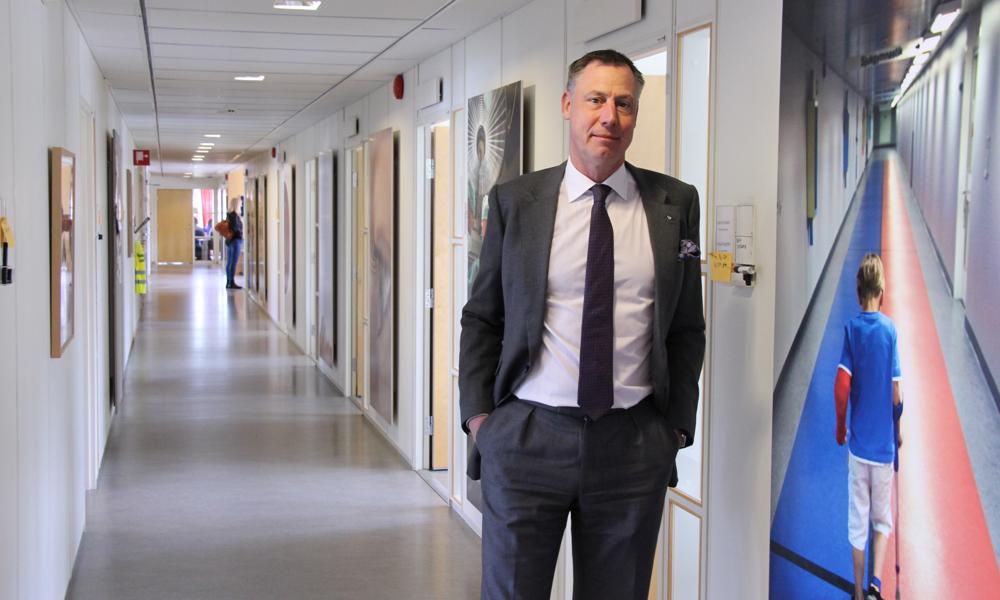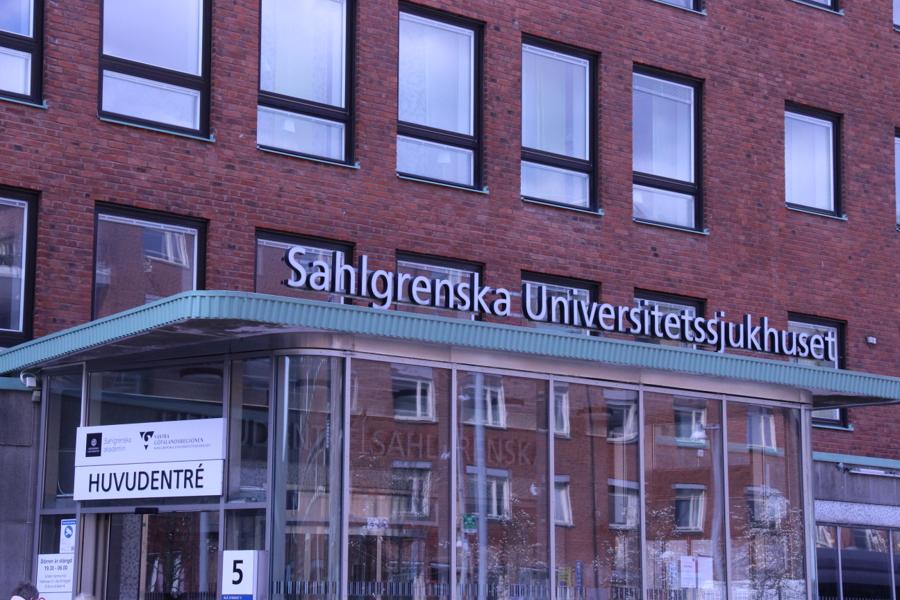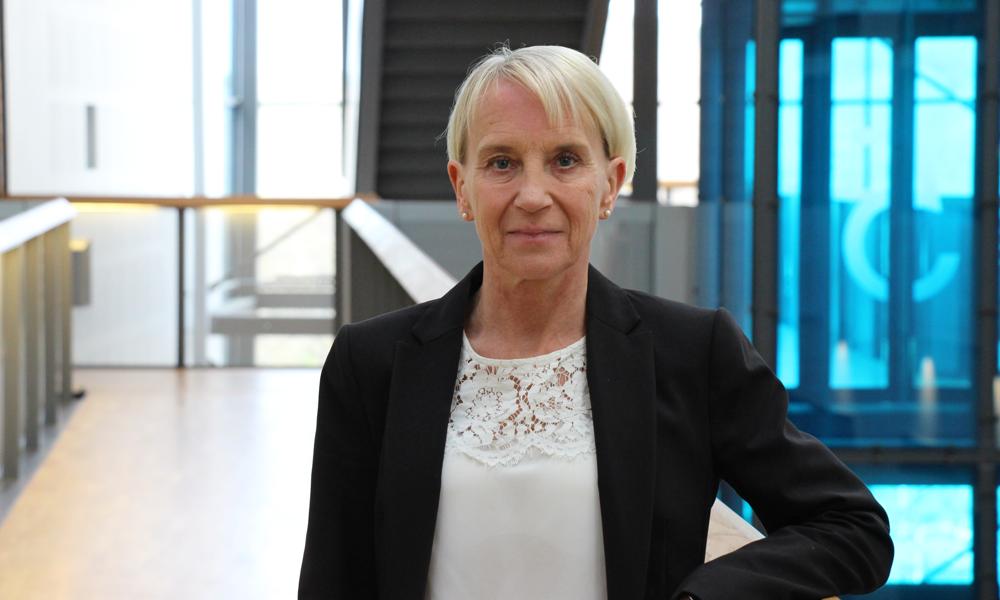Gothenburg, the city of life science – We are ‘Little Boston’

For many people, the industrial city of Gothenburg is probably primarily synonymous with automotive development and Volvo. However, Gothenburg, or Little London as it is also known, is also home to one of the largest life science clusters in the Nordic region, employing over 10,000 people in the area. It is home to many businesses, including Astra Zeneca, Getinge and Mölnlycke Healthcare. Many companies are located close to the University of Gothenburg and the Sahlgrenska University Hospital.
Boubou Hallberg, Director of Sahlgrenska University Hospital, describes the area as ‘Little Boston’ because of the close collaboration between academia, industry and healthcare in the area, similar to that of the city of Massachusetts.
“This sector is crucial for Sweden. To understand its importance, you only have to cross the strait and look at what is happening in Denmark and how Novo Nordisk and Ozempic affect the entire Danish GDP. This is something we have seen in Sweden before. Here in Gothenburg, for example, we were part of the development of Lozec,” says Boubou Hallberg, whom we meet in his office at the University Hospital.
Sahlgrenska University Hospital is working on a number of life science initiatives and is collaborating with several stakeholders in the local area. At the end of April, the hospital opened the first and currently only paediatric centre for advanced therapy drugs at Queen Silvia Children’s Hospital. Region Västra Götaland has also invested in an initiative currently being built in the area, called Sahlgrenska Life, with the aim of speeding up the turnover of new discoveries and innovations.
“Our goal is to become Europe’s leading university hospital by 2032 and within that life science is included,” says Boubou Hallberg.
He emphasises collaboration and partnerships as vital pillars for development within life science.
“For example, we work closely with Sahlgrenska Science Park and the incubator environment for new companies. For us, today’s research is tomorrow’s treatment.”
Sahlgrenska Science Park is located on a hill a few hundred metres away, past the scaffolding and the hospital crowds. From the top of the building, you can spot the rooftops of the hospital and the university.
Cecilia Edebo, former CEO of Cellink, became CEO of Sahlgrenska Science Park just a few months ago.
“I have always had one foot in life science and the other in the business community. Now I can guide several companies simultaneously in business development and use my own knowledge and my network, which, like me, finds it inspiring to make a genuine difference.”
Sahlgrenska Science Park is housing and guiding start-ups, as well as companies in the scale-up phase of life science with, among other things, business development, validation, internationalisation and financing. A total of 144 companies have benefited from the CO-AX accelerator. However, a significant part of Sahlgrenska Science Park’s work is also to facilitate collaboration in the area.
“We work to promote cluster collaboration. This involves healthcare, academia and industry, as well as getting the parties to work together to drive innovation issues around health challenges. Our mission is also to actively ensure that new companies are established and that existing companies are developed,” says Cecilia Edebo.
Although she emphasises the favourable conditions for the industry in West Sweden, companies in the area face several challenges – similar to those in the rest of the country.
One of the challenges is that there are far too few test beds for companies to test their products on today, an issue Cecilia Edebo recently raised with the government’s life science office in connection with their visit to Gothenburg.
“In order to manage the transformation of healthcare, we need more test beds that enable earlier diagnostics to ensure prevention as well as precision.”
Access to secondary data is also a challenge for companies operating in Sweden.
“A lot of AI and digital solutions need access to data, and our control system is characterised by patient data legislation and complexity, which creates obstacles and limits the possibilities, although this is being addressed,” says Cecilia Edebo.
In response to the current challenges, Sahlgrenska Science Park has built up partnerships with various organisations and companies in other countries to create opportunities for Swedish companies to validate and test their products.
When we met up with Cecilia Edebo, Sahlgrenska Science Park, together with AstraZeneca, GoCo Health Innovation City and Microsoft, among others, had just a few weeks ago concluded a so-called Hackathon, called Hackherhealth, focusing on femtech. Leftover balloons in pink and blue from the awards ceremony decorate the office landscape. Among the awarded ideas were an effort to bridge the gender gap in medical research and an app to identify domestic violence. Boubou Hallberg was present to hand out the awards, together with Jenny Nyström, Dean of Sahlgrenska Academy. The first and second prizes were awarded to groups of representatives from Volvo and Deloitte Digital.
Cecilia Edebo believes that a lot of expertise and ideas can also be drawn from the most dominant industry in western Sweden – the mobility industry.
“Globally, we are becoming better at working with sector convergence, but what is important is to have the resources to work together and find the models to build on each other’s knowledge.”
Artikeln är en del av vårt tema om News in English.


